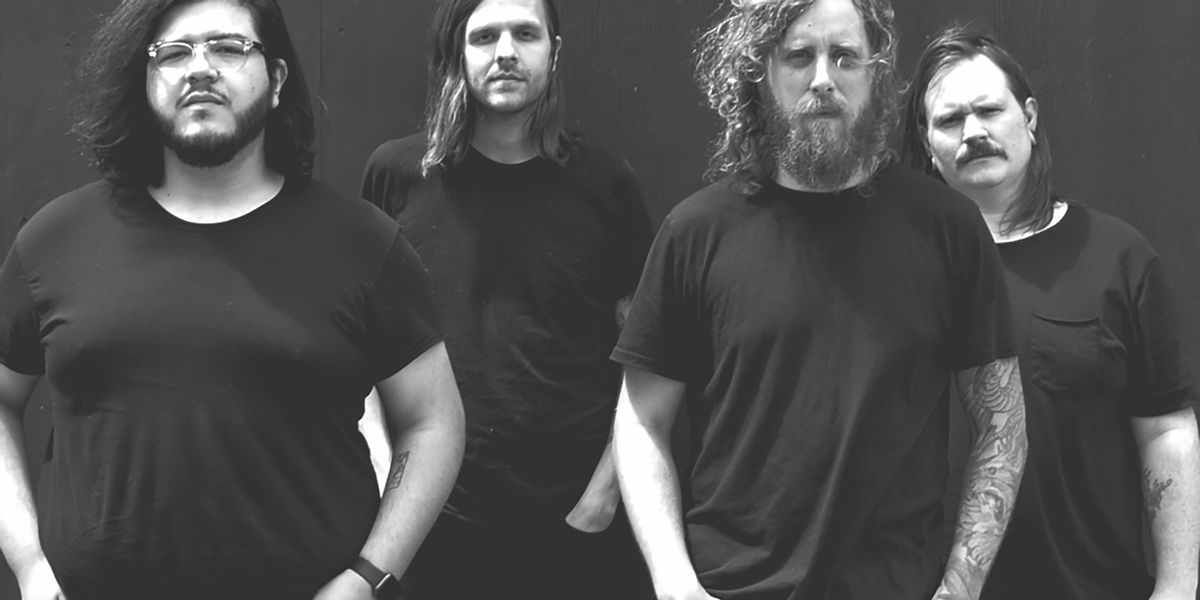Death, the latest release from the formidable Portland, Oregon instrumental group Coastlands, arrives on 9 October via Translation Loss in the United States and Dunk! Records in Europe. Rather than serving as a grim reminder of the eventual vacating of our mortal coils (although, yes, there’s some of that here, too), the LP serves as an emotional journey involving sadness, grief, resolve and even moments of joy.
It’s relentless in its mission of catharsis, slowly building to its emotional peak via the three-pronged attack of “Abandoner”, “Feverwind”, and “Red Smoke Flare”. The listener is given a momentary reprieve on “Dead Friends” before being thrown back into the cauldron of dark, expressive sounds with “Lay Waste” and “Marrow”.
Death ultimately sets a new standard for the band, an album that crystalizes the promise heard on earlier recordings and taking the group to new heights. Guitarists Jason Sissoyev and Jordan Householder weave a spellbinding tale throughout with their post-rock and shoegaze-inflected lines while the rhythm section of Andy Ramirez (bass) and Trent McIntyre (drums) provide the sonic bedrock for the formidable experience that is Death.
Sissoyev recently spoke with PopMatters about the creation of the album.
When did this material kind of start coming together?
It was probably last spring when the bulk of it started coming together when we got back from our first European tour. Prior to that, we had a few ideas. Between me and the other guitarist, Jordan, we’re always sending ideas back and forth. Since I have a studio, I’m always recording stuff, putting together concepts, even if they’re one minute, five minutes; sometimes, they’re 15 seconds.
But when we got back from that tour was when I said, “OK, let’s start going through everything we have, see what common themes we have, what kind of ideas we have both been working through.” As we started piecing that together, we found that many of the guitar parts we’d worked on separately meshed. There were similar keys, similar time signatures, even the ones that weren’t similar sounded really cool.
A few of the songs were ideas that we had for our last record, but they never really worked. We shelved them for a while because at the time we were writing that record, they didn’t make sense. We’ve put them in the Google Drive vault basically and let them sit for a bit.
When did this concept about death present itself?
Jordan and I were talking about just a lot of things that we’ve been going through personally. He lost both of his parents a few years back. It was right around the time he started playing with us and that we really became a band. I’d been going through some similar stuff as well.
The album, in its purest form, is about existential isolation. We connected on that. We both said, “I’ve been thinking a whole lot about loss.” There’s anger and anxiety with that but also mystery and release. Death is a very complex theme.
We said, “What are the chances that we’ve both been going through this?” That was right around the time that we came up with the title. That was before the album was even really written. The name came first, and, as we were writing, we said, “That fits the album and so many things around it.”
The idea of death isn’t always literally. Relationships change, we change, jobs change. There are tiny deaths on a daily basis.
Totally. We lost our drummer two weeks before our first European tour—Trent, who is our drummer now, filled in. Our last drummer put a formal end to our friendship after that. We said, “Well, we’re diving into these themes already!”
[Laughs.]
We said, “Well, shit.” More things kept happening once we started. I don’t know if we were looking for them, but they were there. Friendships, loss, ego.


